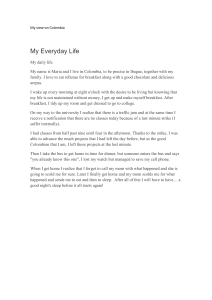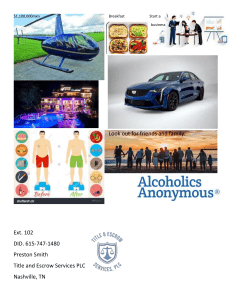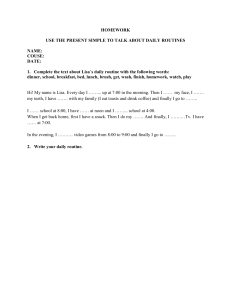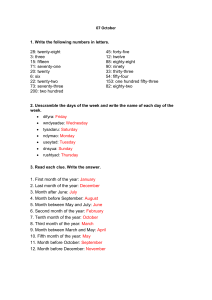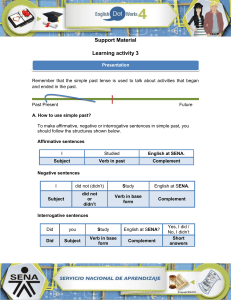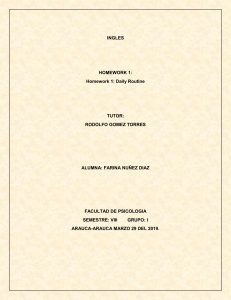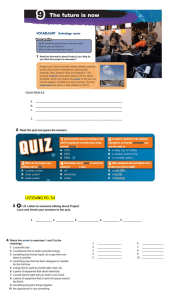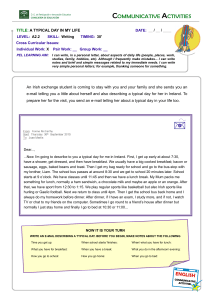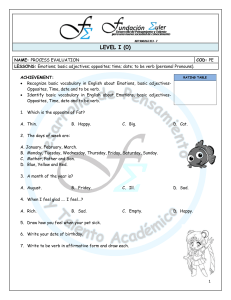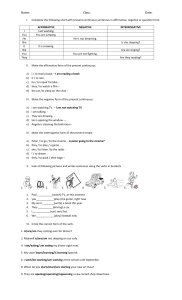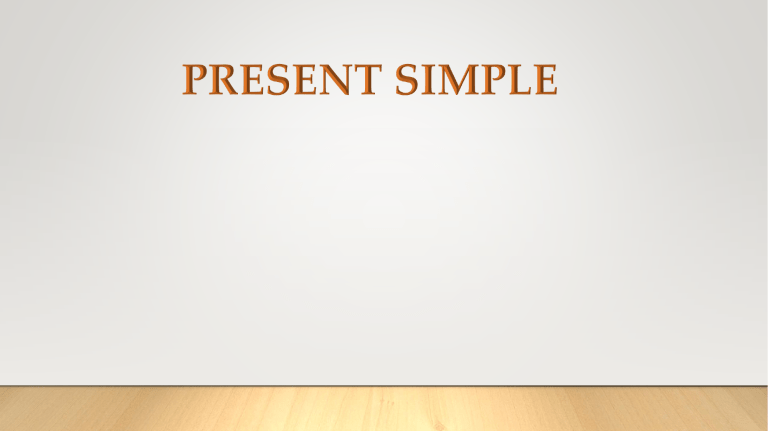
We use it to express: Habits Routines Facts I don’t have lunch. Habits I get up at 5am every day. Routines I can’t eat nuts. Facts Take a shower Watch TV Play videogames Have lunch Listen to music Go to work Affirmative: I watch TV at night. S V COMPLEMENT Affirmative: I drink beer at the weekends. I go to the cinema on Tuesdays. I have breakfast at home. Affirmative: THE ‘S’ RULE I read a book at nights. SHE cleans the house. studies English every weekend. HE study IT runs in the park in the afternoons. SHE washes her hands every hour. Negative: The verb BE has one advantage: It can be negative ITSELF IS ISN’T ARE AREN’T AM AM NOT Negative: Actions verb: SPEAK WRITE They can’t be negative themselves. SPEAKN’T WRITEN’T They need the Negative: help of Actions verbs: something else. DO AUXILIARIES DOES + NOT + NOT DON’T DOESN’T Negative: There is a new element in the sentences DO AUXILIARIES + NOT DOES + NOT DON’T DOESN’T Negative: DO I WE DON’T YOU THEY DOES HE DOESN’T SHE IT Negative: I don’t like vallenato music. She doesn’t takes a shower in the mornings. Negative: He doesn’t speaks German. We don’t have to go to classes. She doesn’t eats sugar. V complement S AUX base Question: Do you speak English? Does she play soccer? Does he have breakfast? Question: Do you speak English? AUX S V base complement Question: Does she play basketball ? Does he drive to work ? YES. He does. NO. He doesn’t. She has breakfast at home. She doesn’t have breakfast at home. ? Does she have breakfast at home ? YES. She does. NO. She doesn’t.


